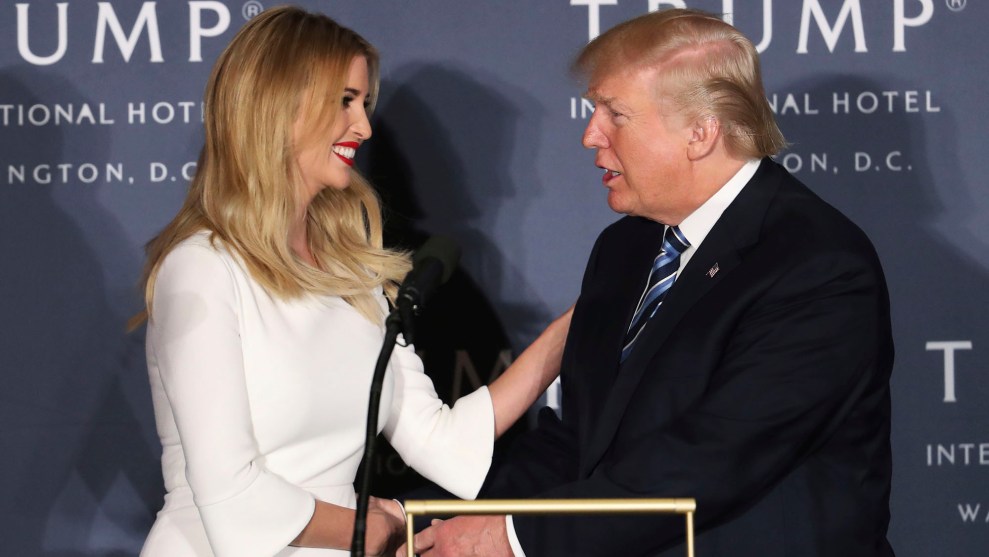
Donald Trump with his daughter IvankaManuel Balce Ceneta/AP
Donald Trump admitted last year that he had a conflict of interest in dealing with Turkey, a country instrumental in the United States’ fight against ISIS, because he has property there. The December 2015 comment foreshadowed the many questions now surrounding how the president-elect will separate himself from his far-reaching business interests.
“I have a little conflict of interest ’cause I have a major, major building in Istanbul,” Trump said. “It’s a tremendously successful job. It’s called Trump Towers—two towers, instead of one, not the usual one, it’s two.”
Trump made those comments to Stephen Bannon, who was then the chairman of Breitbart News, during an interview on Bannon’s radio show Breitbart News Daily. Bannon became the CEO of Trump’s campaign in August, after he secured the nomination. Trump announced shortly after the election that Bannon would serve as his chief strategist in the White House—an appointment widely denounced by Trump’s critics because of Bannon’s history as an enabler of white nationalism as head of Breitbart, not to mention the misogynist, anti-Semitic, and anti-Muslim content the website published.
Trump’s comments about his conflict of interest applied specifically to Turkey. But by the logic Trump used, the conflict would also pertain to US relations with countries around the world where Trump has properties and financial entanglements, from Scotland to Azerbaijan. It would even involve the US government itself. In Washington, DC, Trump operates the Trump International Hotel out of a historic building owned by the federal government.
Trump has said he would eliminate this conflict-of-interest problem by turning his business over to his children, in what he is calling a blind trust. But that questionable solution is even more dubious given that Trump has named his three children to his transition team and likely intends for them to serve as informal advisers on domestic and foreign policy matters. Reports Monday indicated Trump is seeking top-secret security clearances for his kids. That means his children are likely to have access to information they could use to steer their father’s decision-making in a direction friendly to the family business.
Listen to the interview with Bannon here. (The relevant section is at the beginning.)








